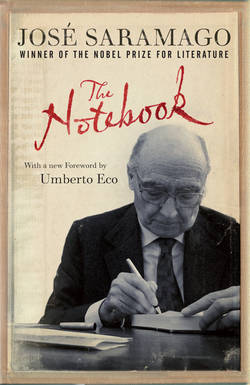Читать книгу The Notebook - José Saramago - Страница 41
На сайте Литреса книга снята с продажи.
DO TORTURERS HAVE SOULS?
ОглавлениеThe idea of a soul that can be considered responsible for any and every act we commit must necessarily lead us to recognize the complete innocence of the body, reduced to being the passive instrument of a will, of a yearning, of a desire impossible to locate in any specific part of itself. A hand in repose, with its bones, nerves, and tendons, is ready to fulfill an order within the instant it is given, an order for which the hand is not responsible, whether it is to offer someone a flower or to stub out a cigarette on someone’s skin. On the other hand, attributing a priori the responsibility for all our actions to an immaterial entity, the soul, that, mediated by our conscience, is also the judge of those actions, leads us into a vicious circle, in which in the end no culprit is answerable for his deed. Yes, we do accept that his soul is responsible, but where is this soul for us to put into cuffs and send off to trial? Yes, we can show that the hammer that destroyed the victim’s skull was wielded by this hand, but if the hand that killed might have just as readily—or unconsciously—held out a flower, how can we incriminate it? Does the flower absolve the hammer?
I mentioned above that will, need, desire (synonyms that, strictly speaking, cannot be kept apart) cannot be specifically located in the body. That much is certain. No one can state, for example, that the will is to be found between the middle and index finger of the hand that is currently employed in strangling someone with the help of its partner to the left. However, we all imagine that if the will has a home, and it must, then it can only be inside the brain, that highly complex universe (the cerebral cortex is about five millimeters thick and contains seventy thousand million nerve cells arranged in six interconnected layers) whose function still largely remains to be studied. We are the brain we have at any given moment, and that is the only essential truth we can state about ourselves. What, then, is the will? Is it something material? I cannot imagine, do not think anyone could imagine, what sort of argument you could use to defend the alleged materiality of the will without presenting some material demonstration of that same materiality. . .
Voluntarism, as is widely known, is the theory that maintains that the will is the basis of being, the root of action, and, in addition, the essential function of animal life. Voluntarist tendencies are already to be found in classical antiquity in Aristotelianism and Stoicism. In contemporary philosophy, voluntarists include Schopenhauer (will as the essence of the world, but beyond cognitive representation) and Nietzsche (the will to power as a principle for achieving success in life). This is a serious matter, and all the evidence requires someone here (not the person writing these lines) who is capable of relating these and other philosophical reflections on the will to the contents of this book, whose title, let us not forget, is The Torturers’ Soul. I should perhaps have stopped here, to the benefit of my sense of honor, had my eyes not lighted—my hand leafing distracted through a humble dictionary—on the following definition: “Will. The capacity for determining to do or not to do something. Liberty is rooted in it.” Nothing could be clearer, as you see: through my will I can determine to do or not to do something, and liberty renders me free to determine myself one way or another. Since language has accustomed us to consider the will and liberty as inherently positive concepts, we are suddenly aware of an instinctive fear that the sparkling medals that we call liberty and will can show the complete and utter opposite on their reverse sides. It was through the use of his freedom (shocking though the use of this word might seem to us in such a context) that General Videla became, through his own will—I insist on that, through his own will—one of the most loathsome participants in the bloody and seemingly unending world history of torture and murder. It was likewise by using their will and their freedom that the Argentine torturers carried out their dreadful work. They wanted to do it, and they did it. So no forgiveness is possible. No national or personal reconciliation is possible.
Knowing whether or not they have souls does not matter much. In fact, the person who should know most about this subject is the Argentine Catholic priest Christian von Vernich, who a few months ago was sentenced to life imprisonment for genocide. His service record shows six murders, the torture of thirty-four people, and forty-two cases of kidnapping. And if I might be allowed a tragic irony, it is even possible that at some point he gave one of his victims the last rites. . .
